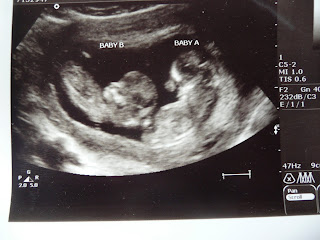
I checked the psychologist's report, and sure enough, the girl had memory deficits.
I told the mom, "I know your daughter can remember things in tough situations. I've seen her memorize and perform two lengthy dramatic dance pieces in front of the whole school. She has good recall of physical movement. But if I understand you correctly, what you want me to do is to improve your daughter's ability to recall language-based information under pressure?"
She smiled as if I finally got it, "Yes. That's what I want."
I was glad that we had at least narrowed down the problem, even if it took two hours. I now understood what the mom wanted for her daughter. (And the mom now knew what her daughter needed.) "Well, I'm not sure if that is even possible, but I'll look into it."
Memory is one of the two key components of traditional intelligence tests: processing speed being the other. What this mom was asking me to do was to make her daughter "smarter." She was asking for a miracle.
Lucky for that mom that I have a tendency to be delusionally optimistic. I think I can do things that others can't. As I result, I sometimes do.
I began a personal research project on memory improvement. I began to read what the experts have written. I found web-sites that aim to improve memory and processing speed, such as Luminosity.com (Brain Training Games). (They also have games for attention!)
I found awesome web-sites such as neuroMod: Memory psychology for a general audience.
What I learned, I passed on to my students, and they improved. The got "smarter."
(And so did I.) You teach best what you know best, so I began my own quest to improve my memory.
I memorized the United States (and their capitals) from west to east with no visual aides. I memorized the countries of central and south America. I used a combination of mnemonics, visualization, and practice.
I developed a process called "SOS squared." It's an acronym for 1) Sift and Sift, 2) Organize and Orchestrate, and 3) Study and Showcase.
I used the methods I learned on neuroMod including memory tag systems to memorize the US Presidents and their number: Chester A. Arthur... #21.
These are more advanced techniques. (I also found simpler techniques such as on-line puzzles for world geography at Owl & Mouse Educational Software.)
I've had fun and I've learned a lot. I've gotten smarter!
So what am I doing on my summer vacation? I'm learning names. Faces and names have always been a challenge for me. (If I can overcome my memory shortcomings, I can teach my students to overcome theirs!)
Last year I found some simple on-line flash card generators such as FlashCardDB When I created these on-line flash cards, my students logged on at home, for no credit, just for the fun of it. (They did the same with the map puzzles.) They learned stuff! Wow.
This summer I've found a free flash card program called the Mnemosyne Project that enables me to create flash cards with visual and audio. I've created "decks" of flash cards containing pictures of people with their names!
Plus, the system uses an advanced algorithm called the Leitner System, which helps me study only the cards I don't know, as often as I need to, in order to keep them in my memory.
This program alone may change a hard working "C" student into a hard working "A" student. Work smart and become smarter!
I'm better at recalling things. I've learned that I can find things and information that I put away carefully.
How smart are you? Who wants to get "smarter"? Perhaps this post will provide a trail head from which you can explore the world of memory improvement. (You may want to bookmark this post so you can find it later!)
Those of you who are involved in working with struggling students, may find some tools to address core deficits such as memory, that will enable your students to overcome obstacles, blossom academically, and take charge of their own learning and life.
Do you recall one of my personal tendencies?





